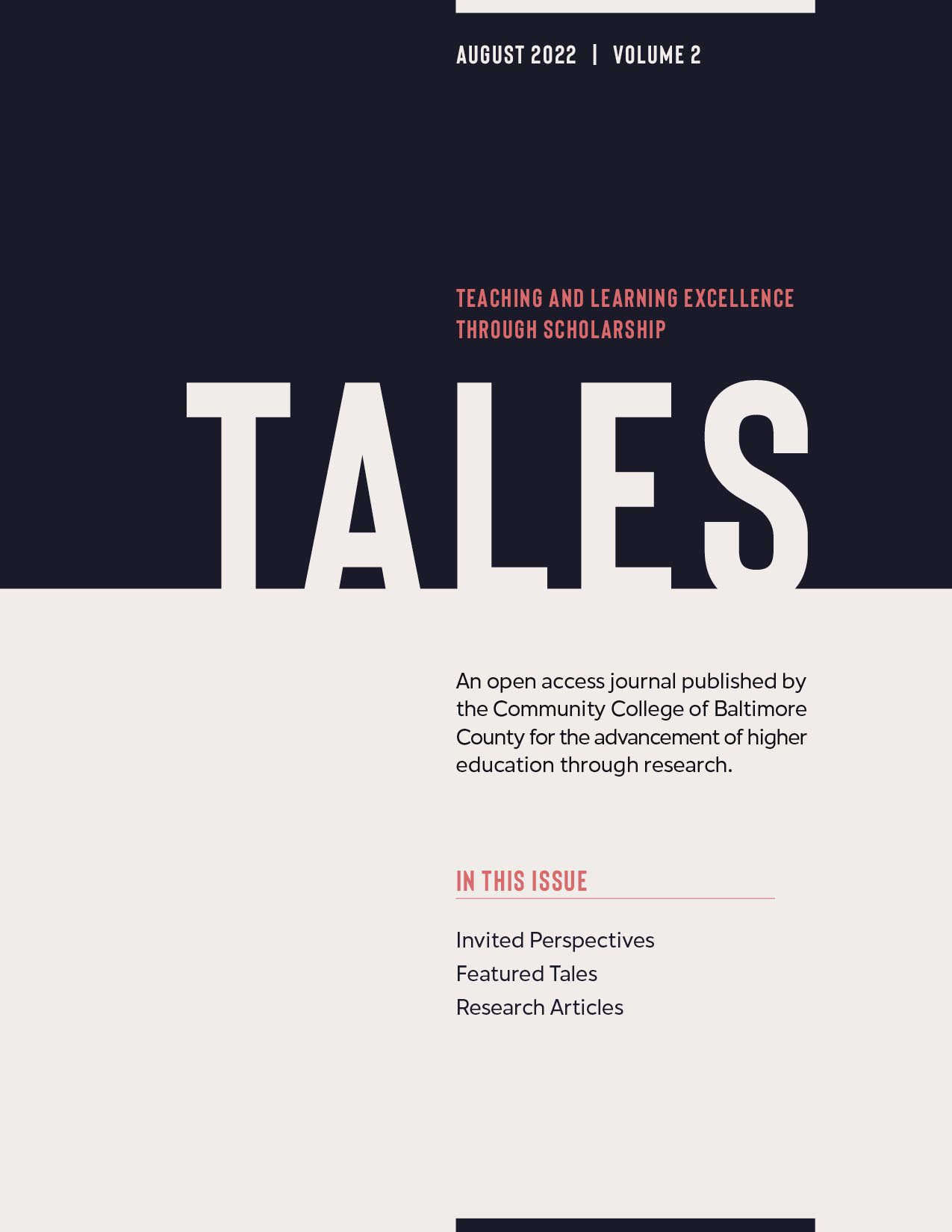Stop Trying to Do It All! The Team-Teaching Producer/Presenter Model for Virtual Classrooms
DOI:
https://doi.org/10.52938/tales.v2i1.2376Abstract
While teaching during a global pandemic has had many challenges, perhaps the greatest challenge facing faculty has been pivoting to a virtual format. Research has indicated for years that a “producer” should facilitate virtual teaching, improving the experience for the presenter and participants, but many faculty attempted to “do it all,” teaching virtual classes solo. We employed team-teaching as we combined 2 virtual sections of our first year composition course (FYC) with one instructor acting as “presenter” and the other acting as “producer” to explore whether the team-teaching producer/presenter (TTPP) model of virtual teaching could increase student success rates and create a sustainable model for faculty. Using practical action research, we collected data from different course modalities of FYC sections at our institution over a period of 2 years to compare pass rates, retention rates, and student evaluation data across all sections of our FYC to our TTPP virtual sections; we analyzed our student feedback from various surveys; and we included our own anecdotal observations. Our preliminary findings showed improved pass/retention rates over those of solo virtual and hybrid virtual sections. Our student-evaluation numbers were among the highest across all sections of FYC. Overall, these findings suggest that there are many new opportunities for research to further demonstrate that virtual teaching, especially in the TTPP model, should persist beyond pandemic necessity and become a sustainable and affordable additional model for remote learning.


